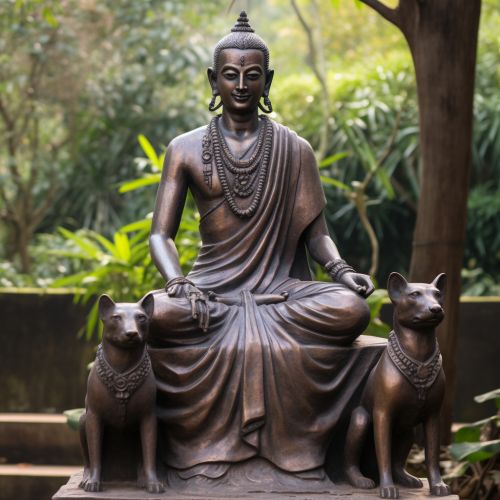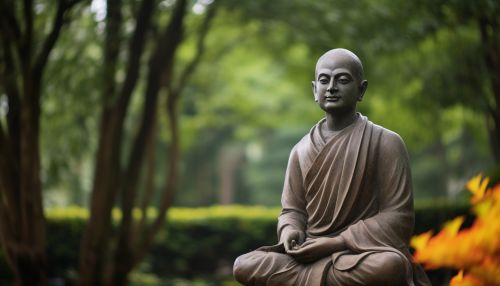Dvaita
Introduction
Dvaita, also known as Dvaita Vedanta, is a sub-school of the Vedanta school of Hindu philosophy. The term "Dvaita" is derived from the Sanskrit word "dva", meaning "two". This philosophy, therefore, is also known as the philosophy of dualism. It was proposed by Madhvacharya, a 13th-century Indian philosopher, and it contrasts with the other two principal sub-schools of Vedanta, the Advaita Vedanta (non-dualism) and the Vishishtadvaita (qualified non-dualism).


Philosophy
The Dvaita philosophy posits a fundamental difference between the individual soul (Jiva) and the supreme being (Brahman or God). It asserts that God exists independently, while the individual souls exist as separate entities, dependent on God. This dualistic interpretation is a departure from the non-dualistic interpretation of Advaita Vedanta, which proposes that the individual soul and God are one and the same.
God
In Dvaita philosophy, God is considered the supreme being, the cause of all causes, and the source of all that exists. God is independent and all other entities, including the individual souls and the material universe, are dependent on Him. God is also considered to be the ultimate object of knowledge and devotion.
Individual Souls
The individual souls, or Jivas, are considered to be eternally distinct from God. They are dependent on God for their existence and their knowledge. The Jivas are also considered to be of different types, based on their level of knowledge and devotion to God.
Material Universe
The material universe, according to Dvaita philosophy, is real and not an illusion, as proposed by Advaita Vedanta. It is created, maintained, and destroyed by God, and is dependent on Him for its existence.
Practices
The practices of Dvaita philosophy include devotion to God, study of the scriptures, and leading a moral life. These practices are considered to be the means to attain liberation (Moksha) or eternal bliss.
Devotion to God
Devotion to God, or Bhakti, is considered to be the primary means to attain liberation. It involves the surrender of the individual self to God and the cultivation of love for Him.
Study of Scriptures
The study of scriptures, such as the Upanishads, the Bhagavad Gita, and the Brahma Sutras, is considered to be an important practice in Dvaita philosophy. It is through the study of these scriptures that one gains knowledge of God and the path to liberation.
Moral Life
Leading a moral life, according to Dvaita philosophy, involves following the ethical principles laid down in the scriptures. This includes truthfulness, non-violence, control of the senses, and purity of mind and body.
Influence and Legacy
The Dvaita philosophy has had a significant influence on Hindu thought and practice. It has also contributed to the development of Bhakti movement in India. The philosophy continues to be studied and practiced by many people, particularly in South India.
